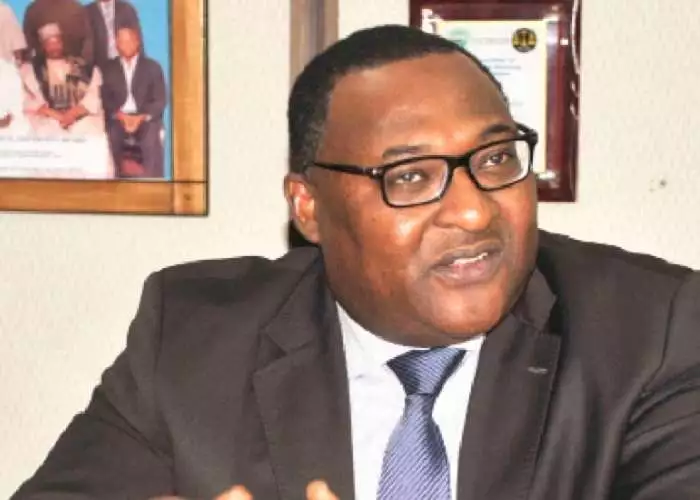By Bayo Bernard
The Nigeria Customs Service, NCS has again received flak from stakeholders in the maritime sector over break down of scanners in various entry points across the country. There are controversies over the present status of the scanners acquired by the federal government during the tenure of earlwhile Controller General of the Service, Abdullahi Inde Dikko.
But recently at a one day talk shop organized by the apex Maritime Reporters’ Association of Nigeria, MARAN, tagged “The Prospects and Challenges of Logistics Service as the Life Wire of the Maritime Industry” the Nigerian Shippers’ Council executive secretary, Hassan Bello blamed delay in cargo clearance at the seaports on 100 percent cargo examination by the customs. He described the current to be primitive, out of tune with normally practices around the world.
The Customs Area Controller of Apapa command, Jibrin Musa had recently stirred the hornet’s nest when he disclosed that the scanners have not totally broken down, insisting that assertion that customs are operating 100 percent cargo examination at the ports are false.
Meanwhile, stakeholders in the sector have also called on the President Muhammadu Buhari government to invest heavily on different modes of transportation as the only solution to the gridlock experienced on the access roads to the two Lagos ports, Tin can and Apapa. For more than five years business activities in the area have been grossly affected due to difficulty experienced in moving in and out of Apapa. Experts estimate the combined human and financial loss to be worth billions of naira.
In the face of this, stakeholders says there is still a way out it the federal government can do the needful by exploiting other modes of transportation, for instance, investing heavily on water and rail transport.
The Shippers’ Council boss had expressed hope that the problematic will be solved by the ongoing investment and development of the nation’s rail system by the federal government, insisting that such will facilitate prompt movement of cargoes through our ports to the hinterland, as soon as they are completed..
Bello was by Henry Cline, General Manager Ports Terminals Operator Limited, PTOL who added for instance that the country should develop its pipelines as a way of moving liquid cargo in order to reduce the load on our raids.
Cline noted that since the adoption of the landlord model of seaport management by the Federal Government through the Nigerian Ports Authority, NPA in 2006, allowing for private sector participation into management, giant steps have not been taken in this regard.
He stated further that it’s necessary to infuse capital in the port development through these private terminal operators. He stated that investment by private terminal operators in terminal management, post concession have been very huge, noting that ‘Reconstruction of quay walls, stacking areas and overall improvement in the infrastructure of the ports, procurement of of new plants and equipment, extra revenues have accrued to the federal government in form of lease fees, throughput fees, etc, employment of professional hands and training of personnel resulting in efficiency and quick turn round of vessels, reduced cargo dwell time in the ports and security of cargoes,” .
While lamenting on the challenges faced by the port operators in the recent time, the PTOL general manager insisted that lack of security at the port and infrastructure decay, including” non-provision of marine craft and many other challenges have set back progress, thus making the operation difficult for port users.
Noting equally, that single mode of transport infrastructure in the seaport is inadequate. He said ”The major mode of transport when the ports were concessioned was road transport. This is still the case after about 11 years of concession. The implication of this is that the seaports/terminals as points of intermodal transfer are saddled with a single mode of transport to exit and receive cargoes.
The consequence of this development is that the logistics of exiting and receiving cargoes are crippled when the only mode of transport is either block or dilapidated.”
However, the perspective of President, National Council of Managing Director of Nigerian Licensed Customs Agent, Lucky Amiwero on the matter is different. Amiwero said the only solution to the problem is huge investment in construction of truck holding bays and truck terminals by the federal government, noting that this wil rid the port access roads of trucks and trailers, which have become a menace to the ports in Lagos and their neighbouring communities.
He said in doing this, the roles of the Nigeria Ports Authority, NPA, in the face dire need of port and logistics infrastructure, especially access roads to ports, must be redefined.
He added that traffic gridlock on port access road, breakdown of scanners, cumbersome customs clearing process and port service charges not tied to specific services, as some of issues setting back growth in the nation’s shipping sector.
Tasking the federal government to find quick solutions, Amiwero said “The port in Apapa cannot be accessed by port users due to poor access roads. The Federal Government must provide a permanent solution to this instead of palliative measures that do not last. Regulators should work to reduce dominant market power of port operators.”
He stated that “The government must build truck holding bay and truck terminal with part of the seven per cent port development fee and define role of NPA through the enactment of proper legal framework that will allocate its responsibility. The country need to define the port model in properly structured legal instruments; enact legislation to control and regulate the shipping/ocean business base on global best practice.”
In all “The government need to also reduce the high storage/demurrage charged by shipping companies, a matter that is currently in court. Logistics facilities such as efficient ports and terminals; efficient multimodal connectivity are critical,” he said
Discover more from The Source
Subscribe to get the latest posts sent to your email.








